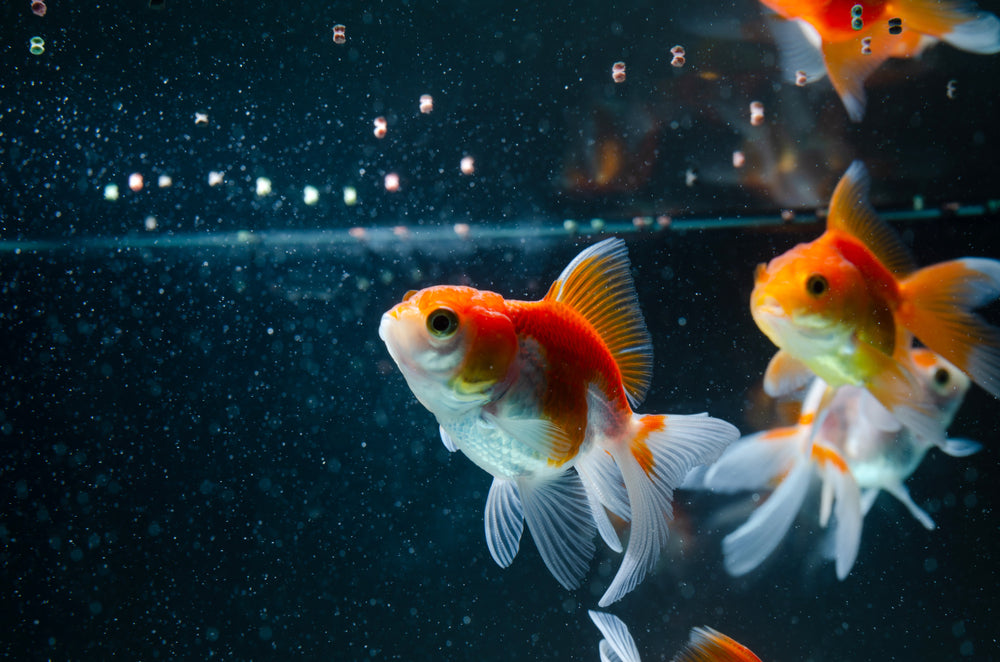Feeding your aquarium fish properly is crucial for their health and well-being. Overfeeding or underfeeding can lead to various issues, from poor water quality to malnutrition. In this comprehensive guide, we’ll cover how to feed your fish, how much to feed them, and how often to do it. Plus, we'll reference some great products from Charterhouse Aquatics to help you ensure your fish are getting the best nutrition.
How to Feed Your Fish
The type of food you provide depends on the species of fish you have. Here are some general guidelines:
Types of Fish Food
-
Flake Food: Ideal for small to medium-sized fish that feed at the water's surface. It’s a good staple diet for many community tanks.
- Recommended Product: TetraMin Tropical Flakes
-
Pellets: Suitable for larger fish and those that feed at different water levels. They sink slowly, making them accessible to various species.
- Recommended Product: Hikari Sinking Pellets
-
Frozen and Live Food: These include brine shrimp, bloodworms, and daphnia, which are excellent for adding variety and enriching your fish's diet.
- Recommended Product: Aquarium Systems Frozen Brine Shrimp
-
Vegetable-Based Food: Essential for herbivorous fish. These foods are rich in plant matter and algae.
- Recommended Product: Hikari Algae Wafers
-
Specialty Foods: Tailored for specific species like cichlids, bettas, and goldfish, ensuring they receive the nutrients they need.
- Recommended Product: API Goldfish Pellets
How to Feed
- Small Quantities: Feed only as much as your fish can consume in a few minutes. Overfeeding can pollute the water and lead to health issues.
- Variety: Provide a balanced diet by mixing different types of food. This mimics their natural feeding habits and ensures they get all necessary nutrients.
How Much to Feed Your Fish
The amount of food depends on the size and number of fish in your aquarium. Here are some tips:
- Observation: Watch your fish during feeding. They should consume all the food within a few minutes. If there's leftover food, reduce the amount next time.
- Species-Specific Needs: Research the dietary requirements of your fish species. Some fish, like carnivorous species, need more protein, while herbivores need more plant matter.
- Feeding Guides: Many fish food products come with feeding guidelines. Use these as a reference but adjust based on your observations.
How Often to Feed Your Fish
The frequency of feeding depends on the type of fish and their natural feeding habits:
General Guidelines
- Once or Twice Daily: Most tropical fish do well with one or two feedings per day.
- Small Frequent Meals: For juvenile fish or species with high metabolisms, small frequent meals are better.
- Fasting Days: Some aquarists recommend having one fasting day per week to clear the digestive systems of the fish and prevent overfeeding.
Species-Specific Recommendations
-
Carnivorous Fish: Species like bettas and cichlids may benefit from fewer, more substantial meals.
- Recommended Product: Hikari Betta Bio-Gold
-
Herbivorous Fish: Algae eaters and other herbivores may need more frequent feedings of plant-based foods.
- Recommended Product: Ocean Nutrition Algae Wafers
Recommended Products from Charterhouse Aquatics
- TetraMin Tropical Flakes - A great staple food for community tanks. Shop now.
- Hikari Sinking Pellets - Ideal for larger fish. Shop now.
- Aquarium Systems Frozen Brine Shrimp - Excellent for variety in diet. Shop now.
- Hikari Algae Wafers - Perfect for herbivorous fish. Shop now.
- API Goldfish Pellets - Specialized food for goldfish. Shop now.
- Hikari Betta Bio-Gold - Nutrient-rich food for bettas. Shop now.
- Ocean Nutrition Algae Wafers - Great for algae-eating species. Shop now.
Conclusion
Feeding your aquarium fish the right way involves understanding their dietary needs, providing the appropriate type and amount of food, and establishing a consistent feeding schedule. By following these tips and using high-quality products from Charterhouse Aquatics, you can ensure your fish remain healthy and vibrant. Happy fishkeeping!


